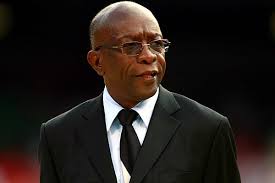By Andrew Warshaw
April 22 – The career of former FIFA vice president Jack Warner lies in tatters after he resigned from the Trinidad and Tobago government following explosive new accusations of corruption during his time as football’s most controversial powerbroker.
Warner, who stepped down from all footballing positions in 2011 in the wake of the infamous cash-for-votes scandal rather than face a FIFA ethics probe, had steadfastly clung to power as Minister of National Security in his own country despite a succession of further damaging allegations about his conduct.
Opponents relentlessly claimed his high-profile government role represented a direct conflict of interest and on Sunday time finally caught up with the one-time CONCACAF President, arguably the most discredited senior figure in the history of football politics.
Last Friday, delegates at CONCACAF’s congress in Panama heard how Warner, who ran the confederation for over 20 years, had tricked the region, which represents football in North America, Central America and the Caribbean, out of ownership of a $26m Centre of Excellence in Port of Spain.
Warner and Chuck Blazer, the one-time double act who fell out spectacularly and ended up as bitter foes, were denounced as “fraudulent in their management” of CONCACAF in a 113-page independent audit carried out by David Simmons, a former Barbados chief justice who heads CONCACAF’s Integrity Committee.
The report found that Warner did not disclose to CONCACAF or FIFA that the Centre of Excellence was built on land owned by his companies. Warner, the audit said , had “deceived persons and organisations” into believing the facility was CONCACAF’s and not his. He was also accused of misappropriating at least $15m by compensating himself with CONCACAF funds without authorisation after his last contract expired in July 1998.
Pressure on Warner escalated over the weekend after one of the major partners in Trinidad’s coalition government called for him to be fired.
Before that could happen, Warner pre-empted any move to get rid of him, just as he did when FIFA investigators closed in on him two years ago after he was accused of being complicit in helping to bribe Caribbean delegates to vote for Mohamed Bin Hammam in the build-up to the FIFA presidential election.
In a brief statement after summoning her Cabinet to a meeting at her private residence, Prime Minister Kamla Persad-Bissessar, who had previously stood by Warner, said he had offered to resign and that she accepted his decision. Warner, who remains a member of parliament, left the meeting without speaking to reporters.
”I wish to thank Mr. Warner for his service to the government and people of Trinidad & Tobago,” Persad-Bissessar said, adding that she had advised Trinidad’s governor general to appoint another lawmaker to lead the security ministry.
Shortly after Friday’s explosive CONCACAF report was released, Warner had remained defiant. “As far as I am aware it is baseless and malicious,” he said in a statement. “I left CONCACAF and turned my back on football two years ago. Since then I have had no interest in any football-related matter.”
But in the end he was unable to withstand both mounting pressure at home and widespread condemnation of the way he ran CONCACAF, a powerful indictment of a man who was FIFA’s longest-serving vice-president but who was ultimately exposed as the most scandal-tainted individual in its corridors of power.
Contact the writer of this story at moc.l1745681769labto1745681769ofdlr1745681769owedi1745681769sni@w1745681769ahsra1745681769w.wed1745681769na1745681769
